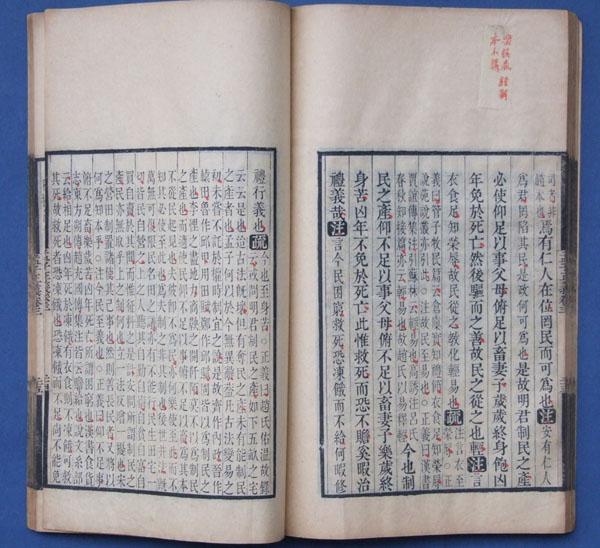Peking University, Apr. 1, 2011: A PKU-led project on compilation of Confucian works has made a remarkable progress, according to a book donation ceremony at PKU on March 30.
A number of government agencies, research institutes, and international organizations received the donation a select edition of Ruzang, or the country s key project for collected works of Confucianism, and a portrait of Confucius.
Tang Yijie, a renowned Chinese scholar and Peking University senior professor, donated fascicles of the select edition published by Peking University Press.
"The aim of this ceremony is to promote academic and cultural communication and get more criticism, help, and suggestions on the select edition of Ruzang, said Professor Tang, also chief expert of the Ruzang Program at China s Ministry of Education, chief compiler of Ruzang, and director of the Compilation and Research Center for Ruzang and of the Confucianism Research Institute at PKU.
Peking University Press has already published 40 volumes of the select edition of Ruzang with some 30 million Chinese characters covering 500 kinds of Confucian classics, whereas the remaining 290 volumes will be finished in 2015, People's Daily Online reported.
Professor Tang emphasized that the Ruzang project has been the biggest academic and cultural project in the fields of humanities and social sciences since 1949, with the participation and cooperation of the academics at home and abroad.
Professor Zhou Qifeng and Professor Tang Yijie (File photo)
PKU President Zhou Qifeng congratulated on the achievements and spoke highly of the importance of the project. Peking University will continue supporting the compilation of Ruzang wholeheartedly, Professor Zhou pledged during his speech at the ceremony.
Director of the Counselors' Office of the State Council Chen Jinyu and Vice President of Renmin University of China Yang Huilin also gave congratulations on the extraordinary achievements of the project and expressed their willingness to join efforts.
Background info:

Pages from Annotation on Mencius, a part of the magnificent Ruzang project (PKU Compilation and Research Center for Ruzang)
About Ruzang
Ruzang is an ongoing project to published collected Confucian works, corresponding with Daozang (Taoist Canon) and Fozang (Chinese Buddhist Canon).
The project of compilation and research of Ruzang was inaugurated at PKU in 2003 as a main subject project of the country s philosophy and social sciences research. Three years later, it became a part of national research plan of philosophy and social science, national publishing plan and key project publishing plan of China s 11th Five-Year Plan.
The project goes in two parts, compilation of select edition and that of complete edition. The select edition includes not only the most representative Confucian classics in Chinese history, but also significant Confucian classics from East Asian countries such as the Republic of Korea, Japan, and Vietnam. The final complete edition, with 5,000 kinds of almost all the major classic works and some 1.5 billion Chinese characters, will be finished in 2025.
Classics in modern era
As Kenji Shimada, a famous Japanese scholar in Chinese studies once said, "Confucianism is not only the representative of Chinese spirits, but also the spirits of the whole East Asia." But some still doubted the necessity of compiling Ruzang in an information and globalization era.
"The aim of compiling Ruzang is the same as compiling Fozang and Daozang, that is, to provide people with reliable materials to study Confucianism and to arrange the culture classics systematically for better conservation and use," Professor Tang Yijie once responded. We still needed to explore and study the classics of Confucianism though it may not totally adapt to the social reality today. Years of hard work have found out potentials of Confucian theories that could help address modern problems."
Ruzang is a basic project in Chinese cultural history with modern academic vision and technological advancement. The full text will be searchable in its digital version, according to an earlier report.
Translated by: Chen Meng
Edited by: Jacques
Source: PKU News (Chinese)
Related News
Photos
More>>history
Traditions
arts
- Unveiling Ceremony of Confucius Institute of Moscow State University Held
- Chomsky Receives PKU Honorary Doctorate, His Lecture Depicts World Order
- Strategy for Global Partnerships
- PKU President Zhou Qifeng Attends New York Alumni Association Annual Meeting
- U.S. Council of Foreign Relations President Richard Haass Speaks at PKU





